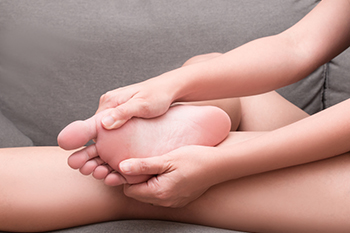
Sesamoiditis, a condition affecting the tiny sesamoid bones just below the big toe, can be a source of discomfort for many. The primary cause of sesamoiditis is repetitive stress on these small bones, often incurred during activities such as running and dancing, that involve increased pressure on the forefoot. Additionally, wearing high-heeled shoes or participating in sports that require frequent push-off movements can contribute to the development of sesamoiditis. Recognizing the symptoms, which include pain, swelling, and difficulty bearing weight on the affected foot, is vital for timely intervention. Diagnosing sesamoiditis involves a comprehensive examination by a podiatrist. Clinical evaluation, including assessing the range of motion and palpating the affected area, is key. Imaging studies like X-rays may be employed to visualize the sesamoid bones and confirm the diagnosis. If you have pain in this part of your foot, it is strongly suggested that you confer with a podiatrist who can diagnose and offer correct treatment for this condition.
Sesamoiditis is an unpleasant foot condition characterized by pain in the balls of the feet. If you think you’re struggling with sesamoiditis, contact one of our podiatrists of Manhattan Footcare. Our doctors will treat your condition thoroughly and effectively.
Sesamoiditis
Sesamoiditis is a condition of the foot that affects the ball of the foot. It is more common in younger people than it is in older people. It can also occur with people who have begun a new exercise program, since their bodies are adjusting to the new physical regimen. Pain may also be caused by the inflammation of tendons surrounding the bones. It is important to seek treatment in its early stages because if you ignore the pain, this condition can lead to more serious problems such as severe irritation and bone fractures.
Causes of Sesamoiditis
- Sudden increase in activity
- Increase in physically strenuous movement without a proper warm up or build up
- Foot structure: those who have smaller, bonier feet or those with a high arch may be more susceptible
Treatment for sesamoiditis is non-invasive and simple. Doctors may recommend a strict rest period where the patient forgoes most physical activity. This will help give the patient time to heal their feet through limited activity. For serious cases, it is best to speak with your doctor to determine a treatment option that will help your specific needs.
If you have any questions please feel free to contact our offices located in Manhattan and Brooklyn, NY . We offer the newest diagnostic and treatment technologies for all your foot and ankle needs.

